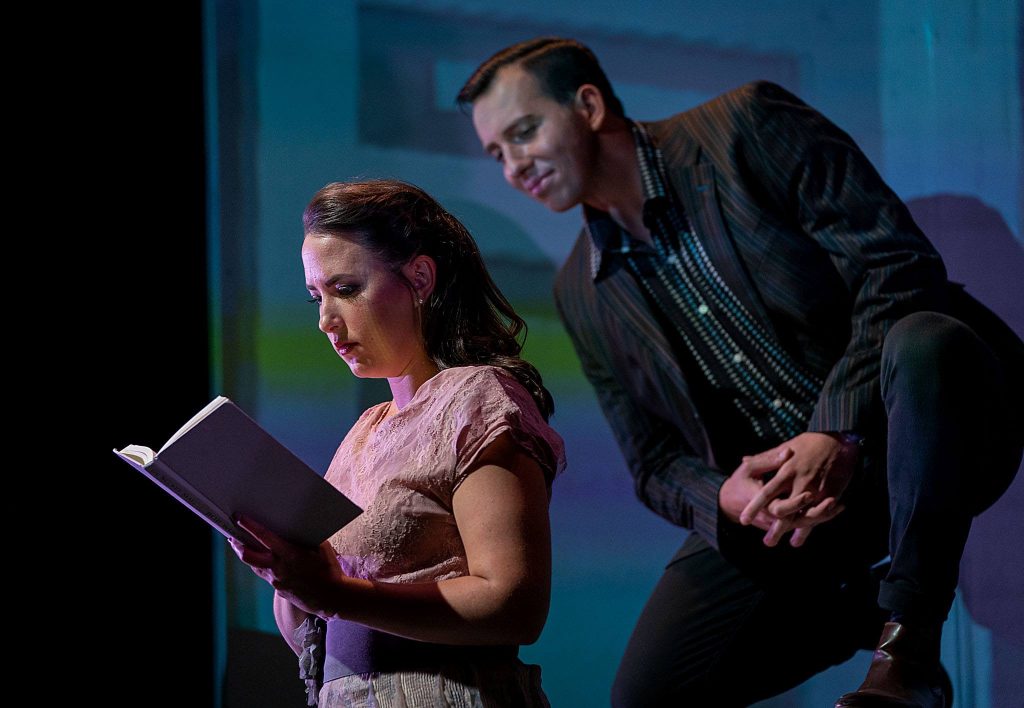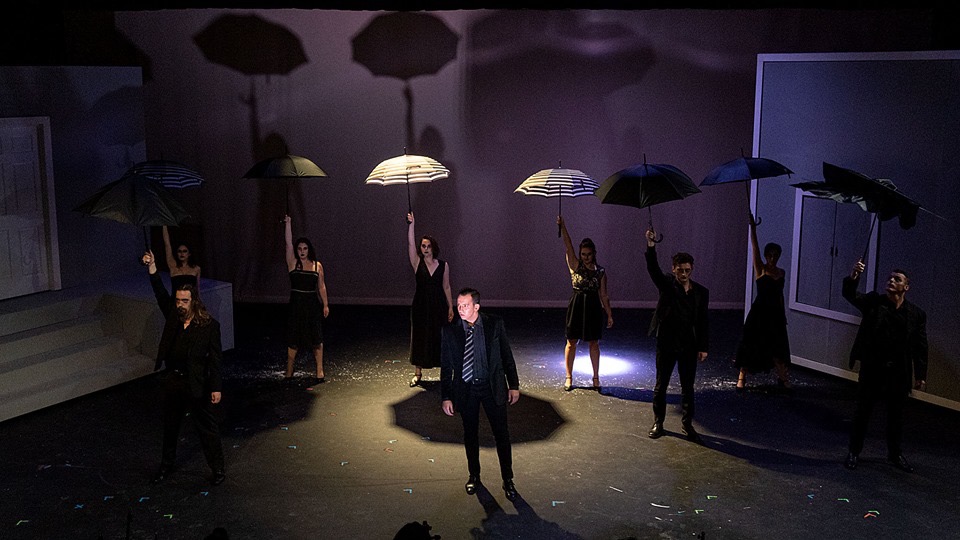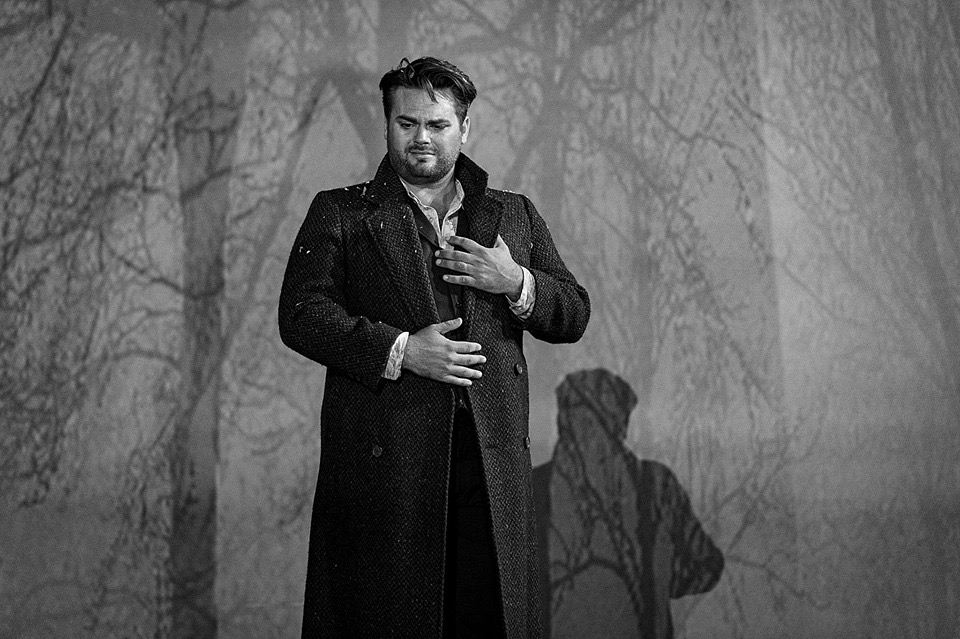Opera NEO’s Compelling ‘Eugene Onegin’ Soars in the Golden Triangle
Producing Pyotr Tchaikovsky’s beloved but demanding opera Eugene Onegin was surely an act of faith by Opera NEO’s Artistic Director Peter Kozma. San Diego Opera, for example, hasn’t touched this challenging score in decades.

Rachel Blaustein & Luke Harnish [photo (c.) Gary Payne]
Based on a novel by Alexander Pushkin, the story of Eugene Onegin presents a highly unusual triangle. Set in early 19th-century Russia, Tatyana, the younger sibling in the household of landed gentry far from the city, falls madly in love with Onegin, a dashing but slightly older and more sophisticated neighbor of equal social standing. Onegin casually rejects Tatyana’s brash romantic overtures, sent in a letter, and leaves the country after killing his friend Vladimir Lensky in a duel. When Onegin returns six years later and finds that Tatyana is now happily married to the older Prince Gremin, he realizes his mistake rejecting Tatyana and tries to win her back. She confesses that although she may still love Onegin, she is not going to the leave the Prince and her place in St. Petersburg society.

Luke Harnish & Eugene Onegin ensemble [photo (c.) Gary Payne]

Dane Suarez [photo (c.) Gary Payne]
Bass-baritone Jason Zacher communicated the grace and dignity of Prince Gremin, and even though this is one of the classic bass roles of opera, he navigated the Prince’s lowest notes with resonant confidence. Sarabeth Belón’s saucy Olga and Rachel Deatherage’s sweetly overbearing Madame Larina agreeably completed Tatyana’s family members.
Chorus Master John Elam trained his ensemble exceedingly well: the pair of rousing peasant choruses in the first act opened the opera on an auspiciously vibrant note. Kozma’s 36-member orchestra, large by Opera NEO standards, gave a favorable account of Tchaikovsky’s voluptuous score, with the exception of the upper strings, whose pitch at times proved less than rock solid. Kozma’s orchestral tempos and his pacing of the dramatic action suited my expectations to a T.
Taylor Payne’s costumes, not precisely period yet not rakishly contemporary, gave the opera the sleek sophistication it requires, and the umbrellas neatly symbolized the power of community expectations. The set recycled the moveable panels from Opera NEO’s first production, although projections of the verdant Russian countryside and—surprise, surprise—close-ups of birch trees, helped place the opera.
Opera NEO opened this production of Tchaikovsky’s “Eugene Onegin” on Thursday, August 8, 2019, at the La Jolla Country Day School’s Four Flowers Theater. Another performance is slated in the same venue for August 10.

Ken Herman, a classically trained pianist and organist, has covered music for the San Diego Union, the Los Angeles Times’ San Diego Edition, and for sandiego.com. He has won numerous awards, including first place for Live Performance and Opera Reviews in the 2017, the 2018, and the 2019 Excellence in Journalism Awards competition held by the San Diego Press Club. A Chicago native, he came to San Diego to pursue a graduate degree and stayed.Read more…
